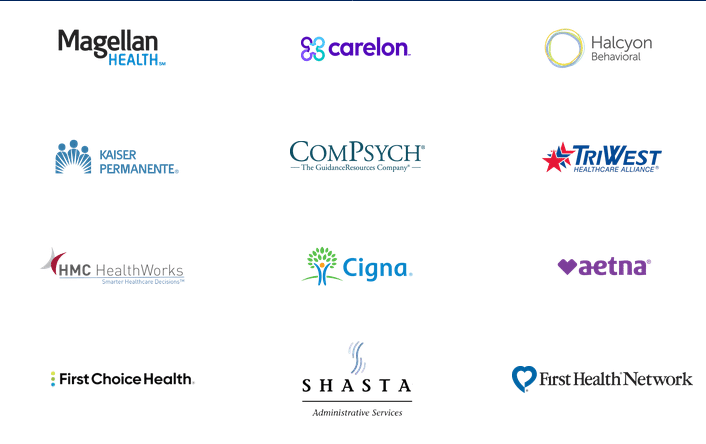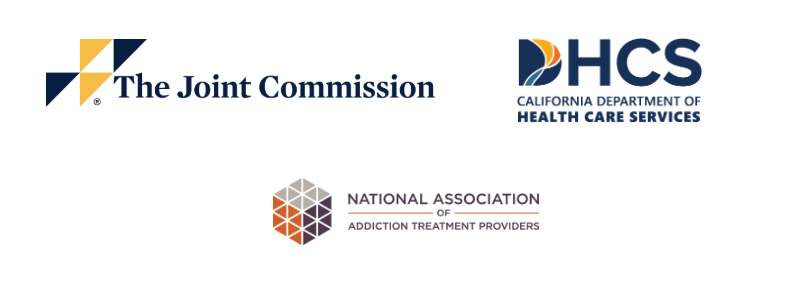Key Takeaways
- Major Depressive Disorder (MDD) is a serious mental health condition that can make daily life and activities very difficult.
- The duration of MDD can vary significantly, with untreated episodes typically lasting six to twelve months, but this can be substantially reduced with effective and timely treatment.
- Untreated depression increases the risk of chronic illness and serious complications, including a heightened likelihood of suicidal thoughts and behaviors, with about two-thirds of affected individuals considering suicide.
- Various factors such as genetics, psychological resilience, environmental stressors, and personal or family history play critical roles in the length and severity of depressive episodes.
- A Mission for Michael (AMFM) offers comprehensive, individualized treatment for MDD, integrating evidence-based therapies like Cognitive-Behavioral Therapy and Interpersonal Therapy within a supportive environment.
Understanding the Duration of Major Depressive Disorder (MDD)
Major Depressive Disorder (MDD) is a severe mental health condition that casts a persistent shadow of sadness and disinterest over daily activities, significantly disrupting an individual’s entire life.
This condition is characterized by a range of symptoms including a sustained low mood, a marked loss of pleasure in nearly all activities, changes in weight or sleep patterns, feelings of worthlessness or excessive guilt, and possible thoughts of suicide.
The duration of an episode of MDD can vary greatly; if left untreated, it typically spans six to twelve months. However, this period can be considerably shortened with effective treatment. Factors such as the timely application of therapeutic interventions and the overall management of the disorder play crucial roles in determining the length of depressive episodes.
Founded in 2010, A Mission For Michael (AMFM) offers specialized mental health care across California, Minnesota, and Virginia. Our accredited facilities provide residential and outpatient programs, utilizing evidence-based therapies such as CBT, DBT, and EMDR.
Our dedicated team of licensed professionals ensures every client receives the best care possible, supported by accreditation from The Joint Commission. We are committed to safety and personalized treatment plans.
Impact of Untreated Depression
- Prolonged Suffering: Increases the risk of the condition becoming chronic.
- Chronic Depression: Can trigger continuous depressive episodes, drastically affecting life quality.
- Complications: Increases the risk of serious complications, including suicidal thoughts and behaviors. Statistics indicate that approximately two-thirds of individuals with clinical depression consider suicide, and many may act on these thoughts.
Factors Influencing MDD Duration
- Biological Factors: Genetics, brain chemistry, and hormonal imbalances play a crucial role in predisposing individuals to longer and more intense depressive episodes.
- Psychological Components: An individual’s coping skills and overall mental health significantly impact how they manage and recover from depression.
- Environmental Influences: Stressful life events such as the loss of a loved one, job loss, or ongoing financial difficulties, along with societal factors like stigma and access to mental health care, can either trigger or prolong episodes.
- Personal and Family History: A history of depression or other mental health disorders in the family can increase the likelihood of longer episodes, as can personal experiences with trauma or chronic stress.
MDD Treatment Options and Their Effectiveness
Importance of Early Intervention
Starting treatment promptly after symptom onset significantly enhances the effectiveness of therapeutic interventions, reducing both the duration and severity of depressive episodes. Early treatment also helps prevent the condition from becoming chronic and decreases the likelihood of recurrence.
Common Therapeutic Approaches for MDD

Cognitive Behavioral Therapy (CBT) is an effective approach to managing major depressive disorder.
Cognitive-Behavioral Therapy (CBT)
Cognitive-Behavioral Therapy (CBT) is a widely recognized and effective treatment method that targets negative thought patterns and behaviors linked to depression. It operates by identifying and altering cognitive distortions, which helps alleviate symptoms and prevent future depressive episodes.
Interpersonal Therapy (IPT)
Interpersonal Therapy (IPT) focuses on enhancing personal relationships and communication skills to address feelings of isolation and loneliness that are often associated with depression. As an evidence-based therapy, IPT has been demonstrated to significantly improve outcomes for individuals with MDD, much like CBT.
Medication and Its Role in Recovery
- Function: Medications primarily work by balancing neurotransmitters in the brain, which plays a critical role in mood regulation.
- Management: Collaborating closely with a healthcare provider is essential to determine the most effective medication and appropriate dosage. For some, finding the right medication may require trying several options.
- Combined Therapy: When used in conjunction with psychotherapy, medications can significantly enhance treatment outcomes, providing a comprehensive approach to managing major depression.
Strategies to Shorten MDD Episode Duration
Lifestyle Changes to Support Mental Health
| Lifestyle Factor | Benefits |
| Regular Exercise | Activities like daily walks, yoga, or team sports can boost mood and decrease symptoms of depression. |
| Balanced Diet | A nutritious diet supports overall brain health and aids in mood regulation. |
| Adequate Sleep | Ensuring sufficient sleep each night helps stabilize mood and improve cognitive function. |
| Mindfulness and Stress Reduction | Techniques such as meditation or deep breathing exercises can manage symptoms and potentially shorten the duration of depressive episodes. |
Role of Support Systems in Recovery
- Emotional and Practical Support: Family, friends, and mental health professionals can provide the necessary encouragement and assistance to manage depressive episodes effectively.
- Monitoring and Intervention: Support systems help monitor symptoms and ensure individuals receive timely and appropriate treatment, playing a key role in reducing the episode’s duration and severity.
Preventing Recurrent Episodes
- Consistent Treatment Adherence: Continuously following a prescribed treatment plan, including taking medications as directed, attending therapy sessions, and maintaining open communication with healthcare providers.
- Healthy Coping Mechanisms: Developing and practicing healthy coping strategies such as regular exercise, mindfulness, and leveraging support networks can build resilience against potential stressors that trigger depressive episodes.
Long-term Implications of MDD
Chronic Cases and Their Management
- Medical and Therapeutic Interventions: Consistent medical treatment coupled with therapy is essential. Regular follow-ups with healthcare providers ensure that the treatment plan remains effective and is adjusted when necessary.
- Lifestyle Modifications: A healthy diet, regular physical activity, and sufficient sleep are foundational in supporting mental health.
- Support Systems: Engaging in support groups or ongoing therapy provides crucial emotional support and practical coping strategies.
Impact on Quality of Life and Daily Functioning
- Work and Education: Symptoms like fatigue, lack of motivation, and difficulty concentrating can severely impact performance at work or school. This often leads to a cycle of decreased self-esteem and increased stress, further exacerbating depressive symptoms.
- Personal Relationships: The strain of chronic symptoms can also affect personal relationships, potentially leading to social withdrawal and isolation.
Strategies to Mitigate Effects
- Set Realistic Goals: Manage expectations and set achievable goals to prevent feelings of overwhelm and frustration.
- Prioritize Self-Care: Regular self-care practices can improve overall well-being and reduce symptoms.
- Seek Support: Utilizing available support systems, including professional help, family, and friends, is vital in managing depression effectively.
- Workplace and Educational Support: Employers and educational institutions can offer accommodations such as flexible scheduling or additional support resources, helping individuals with depression manage their responsibilities more effectively.
Why Choose A Mission for Michael for Your Major Depressive Disorder Treatment?

Comprehensive MDD treatment at A Mission for Michael (AMFM) includes music and art therapy for holistic recovery.
At AMFM, we specialize in comprehensive and personalized treatment for most types of depressive conditions, including MDD.
Located across California, Virginia, and Washington, our facilities offer a conducive, home-like environment for recovery, focusing on whole-person care that blends traditional and holistic treatment methods effectively.
Comprehensive Treatment Approach
- Individualized Care: We start with a comprehensive assessment to understand the full scope of your depression. From them, we can customize the treatment to address specific symptoms and needs.
- Dual Diagnosis: Our programs are adept at handling complex cases, including dual diagnosis conditions.
Wide Range of Therapeutic Options
- Traditional and Holistic Therapies: We utilize a combination of evidence-based therapies such as CBT and Dialectical Behavior Therapy (DBT), alongside innovative approaches like music and art therapy, to cater to various preferences and needs.
- Supportive Environment: Our treatment centers provide a nurturing atmosphere that encourages healing, supported by a team of dedicated mental health professionals.
Accessibility and Insurance Compatibility

Insurance and Financial Support: We understand the financial concerns that come with treatment, hence we accept most major insurance providers and assist with insurance verification to make the process seamless.
- Immediate Help: With facilities that offer same-day admissions, we ensure that help is available when you need it the most.
Diverse Treatment Settings
- Inpatient and Outpatient Services: Depending on the severity of the condition, we offer both inpatient and outpatient treatment options. This flexibility helps accommodate individual treatment needs and ensures continuous support throughout the recovery journey.
Certifications and Credibility

Licensed and Accredited: Our commitment to clinical excellence is underscored by our adherence to strict industry standards, holding licenses and accreditations from respected regulatory bodies.
Choosing AMFM means choosing a center that understands the complexities of depression and treats every client with dignity. Our goal is to help you manage your MDD symptoms effectively and regain control over your life. Contact us today to start your journey to recovery.
Start your recovery journey with AMFM today.
Frequently Asked Questions (FAQ)
What factors influence the duration of MDD episodes?
The duration of MDD episodes is affected by genetics, brain chemistry, coping skills, environmental stressors, and personal or family mental health history.
How long does an untreated episode of MDD typically last?
An untreated MDD episode generally lasts six to twelve months but can vary based on individual factors.
What are the risks of not treating MDD?
Untreated MDD can lead to chronic depression, prolonged suffering, and increased risk of suicidal thoughts and behaviors, with two-thirds of affected individuals considering suicide.
How can the duration of a depressive episode be shortened?
Early intervention and treatments such as medication, CBT, IPT, and lifestyle changes including exercise, balanced diet, and adequate sleep can shorten episodes.
Why choose A Mission for Michael for MDD treatment?
A Mission for Michael offers comprehensive, personalized MDD treatment across multiple states, using evidence-based and innovative therapies within a supportive environment. We also specialize in complex dual diagnosis, ensuring tailored care for effective symptom management and recovery.







